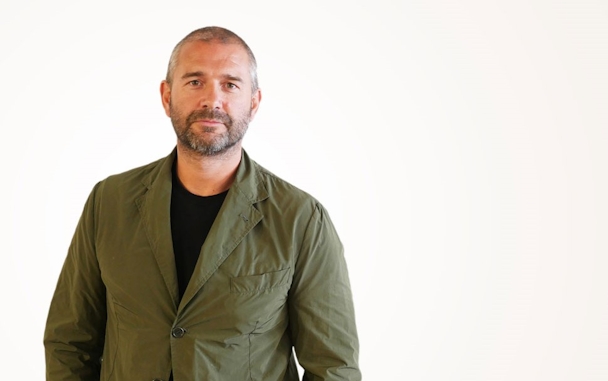It’s time for staff to get back into the office, says Iris chair Ian Millner
Remote work is holding back the creative, marketing and advertising sectors and it’s time agencies and their staff faced the truth, says the Iris Worldwide co-founder in the latest installment of our How I Run My Agency series.

Iris chair Ian Millner believes staff need to get back to the office
As chair of Iris, the agency that has flourished under Cheil Connec+’s ownership for almost a decade, straight-talking East Midlander Ian Millner believes that remote work is now suffocating creativity.
As Millner celebrates 25 years of leading the agency, he remains steadfast in his belief that, for creative agencies, in-office culture is simply irreplaceable and he is clear about the need for creative and marketing professionals to focus purely on what delivers value to the agency’s clients. “There is just something about being in an office in our industry that really matters,” he says. “Standards, culture and non-linear ideas come from proximity, from bumping into people, having unexpected conversations. You just can’t do that on Zoom.
“The office is where we push for originality, where passion and emotion fuel creativity. We’re all spending too much time on trendy topics, such as AI, and not enough time doing the one thing that will save the creative industry – being original.”
Want to go deeper? Ask The Drum
Millner’s skepticism about AI is rooted in his belief that creativity is something clients can’t replicate internally or through tech. And, for him, the office/studio environment is vital for fostering this kind of irreplaceable creativity.
Agencies are often guilty of chasing ‘shiny new toys’ and Millner believes that too many are too quick to chase new trends rather than staying focused on delivering genuine client value. “We’ve got to remember that clients look to us for things they can’t do themselves. They don’t want us to talk endlessly about AI; they want original ideas and a genuine partnership.”
He points out how clients appreciate the energy that comes from a bustling office: “Clients like to see an office full of people doing exciting things. It’s a branded experience in itself. It gives them confidence in our capabilities.”
Evolution under Cheil
Reflecting on Iris’s journey since its acquisition by Cheil in 2014, Millner outlines a strategic evolution that has kept Iris thriving while maintaining its distinct identity. He describes Iris as “big enough to make a difference but small enough to be creatively innovative” highlighting that Iris hasn’t been absorbed into a faceless corporate structure. This balance, he says, has allowed the agency to grow without compromising its culture.
“The first five years were essentially an earn-out, but they were pretty hands-off,” Millner reveals. “We were left to be ourselves.” It was only after the Covid-19 pandemic that more integration took place, driven by the need for greater collaboration across the Cheil network. Today, Millner’s role is heavily focused on ensuring that Iris is a strong partner to Cheil – unlocking synergies, supporting the broader network and creating value. “It’s about being a good collaborator, supporting their brands, leveraging our talent to support broader initiatives. All positive, reasonable expectations.”
When asked why he ultimately chose to become part of Cheil over private equity or listing on the stock market, Millner says: “We looked at all the options. Private equity didn’t make sense for us. We’d been growing every year and there weren’t really any more ‘growth tricks’ left for a PE firm to help with. We wanted a partner that understood us and where we could have a strategic alignment. With Cheil, the fit was natural, particularly given our work with Samsung and our experience in that category.”
Millner’s career in itself is an inspiring story of entrepreneurial determination and vision. He co-founded Iris 25 years ago, turning it from a small concept into a global network employing over 1,000 people and generating more than $100m in annual revenue. Iris made its mark working with major clients such as Samsung, Adidas and Starbucks, establishing itself as one of the most influential agencies in the agency world. Despite the ups and downs – such as the 2008 financial crisis, when Millner admits Iris was overexposed and faced significant challenges – he is rightly proud of the culture and resilience that the agency has built.
Advertisement
Exploring entrepreneurial spirit
In addition to his responsibilities at Iris, Millner has recently launched a podcast, Entrepreneurs in the Wild, which provides a platform for conversations with industry leaders, exploring what drives them and how they have navigated the complexities of business. Millner says: “I listened to other podcasts and thought, ‘I could do that.’ Iris turned 25 this year and it felt like the right time to look back, speak to the people who have been significant along the way and really understand what entrepreneurial spirit means.”
Millner himself believes that entrepreneurial spirit isn’t just about founding a company. For him, it’s a mindset characterized by resilience, creativity and a playfulness that he feels the industry needs now more than ever. “The industry is under pressure to ‘grow up,’ but what it really needs is the freedom and empowerment that entrepreneurial spirit brings,” he says. To date, his podcast has featured prominent figures from the marketing industry and Millner uses these conversations to advocate for a return to the qualities that made advertising successful in the first place: boldness, creativity and passion.
Advertisement
Perspective in a shifting industry
For Millner, the biggest challenge facing the marketing industry today is staying grounded in what clients need while avoiding the temptation to get caught up in fads. “It’s easy to get buoyed along by whatever everyone else is talking about. AI, the metaverse, you name it. But at the end of the day, it’s the fundamentals that matter. Clients need you to be a partner they can’t do without, to bring something different, to be proactive, to excite them.”
Millner’s vision for Iris’s future aligns perfectly with these sentiments. With new leadership stepping in as part of a generational transition at Iris – Zoe Eagle was appointed as CEO of Iris London from Accenture, Katy Hopkins joined as executive creative director from House 337 and Leigh Armstrong was appointed executive vice-president of global growth and marketing director among other senior appointments – Millner is focused on ensuring continuity while embracing necessary changes. “We’ve recruited a completely new leadership team and it’s my job now to make sure they’re set up for success. There comes a time when change is what really matters, and we are at that point.”
When asked what he would do differently if he were starting over, Millner reflects: “If I did it all again, I think I’d build something smaller, more focused, probably in the US, focusing on the creative economy and working with influencers. But for now, I love what I do and I love Iris. There’s still plenty of work to be done.”
Suggested newsletters for you
Focus on originality, not fads
Millner’s call for a return to the office isn’t just about control; it’s about rekindling what he feels has made agency cultures thrive for decades. He believes that being physically present with colleagues drives the kind of creativity that clients truly value. “Success in our industry is driven by emotion, passion and pushing to go further. You need an environment that fosters that. One or two percent differences in daily interactions translate to huge differences in outcomes.”
His blunt dismissal of AI as the solution to the industry’s challenges is refreshing at a time when many agencies are infatuated with the latest tech trends. “We’re talking ourselves into an early grave as an industry if we keep focusing more on AI than on originality. It won’t be AI that saves the creative industry; it will be creativity and originality. That’s what clients can’t get anywhere else and that’s what we should be focusing on.”
As Iris moves forward under new leadership, Millner’s vision is simple: keep it real, keep it original and focus on what truly matters – creating value for clients by being irreplaceably human.
